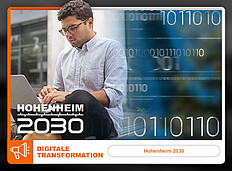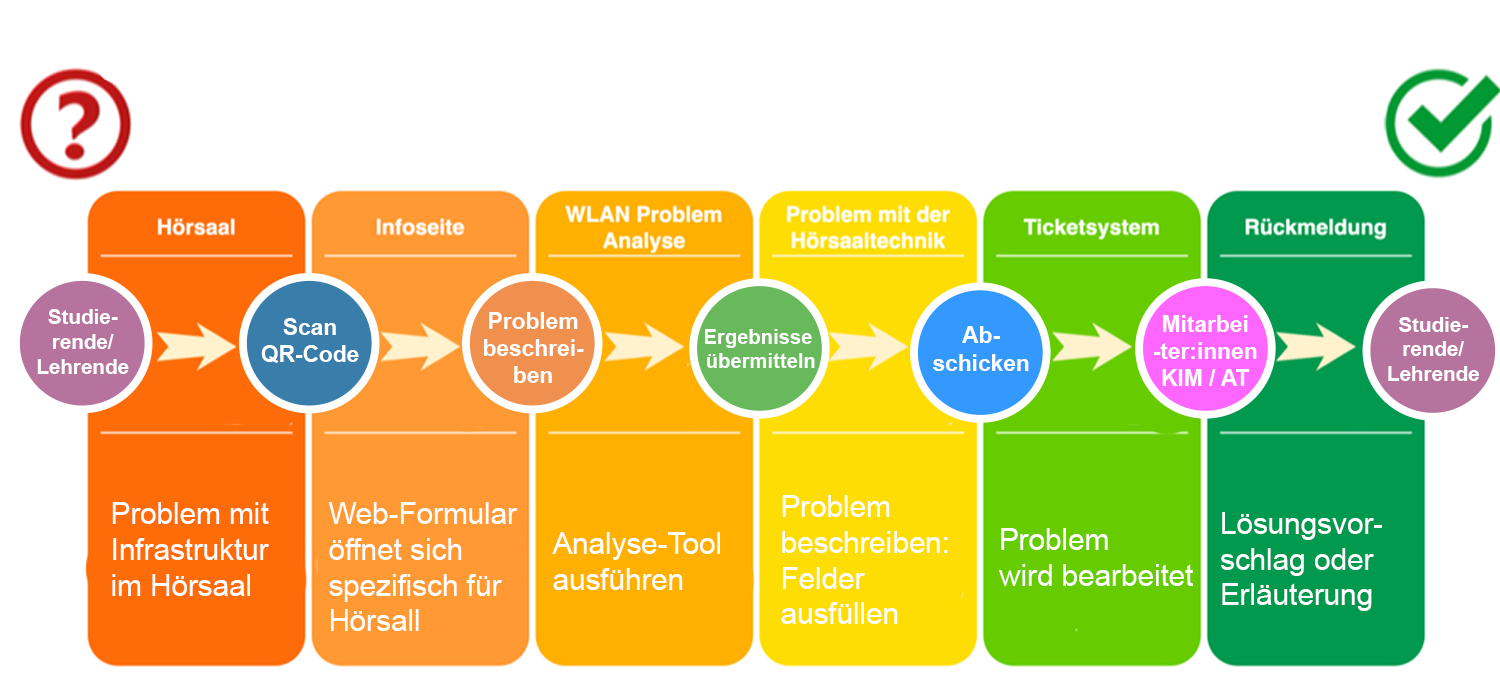Besser wär besser
WiFi Coverage on Campus [27.01.22]
In the "Better would be better" series, you vote for suggestions for improvement in the Online Courier. The editorial team asks the responsible contact persons. Today: " WiFi coverage". Stefan Farrenkopf, head of the KIM, answers. For a planned action, he asks for your help in the coming days! You can vote on the next topics for "Better would be better".
The wish for better WiFi coverage on campus is not new. In the online voting for "Besser wär besser" (Better would be better), the suggestion has also made it to first place several times in recent years.
The basic problem has not changed since the last report in January 2020. There is still a major staff shortage at KIM due to the general shortage of IT specialists. At the same time, the to-do list of digitalization measures at the university is extremely long and the budget limited.
Nevertheless, the new head of KIM sees opportunities to achieve concrete improvements for students in the short term. He is asking for your help!
The answer
Stefan Farrenkopf, Director of the Communication, Information, and Media Center (KIM).
"We often hear from students that WiFi reception on campus is generally not very good. In order to make concrete improvements, however, we need very precise indications of where the problems actually occur. We want to focus first on the lecture halls and seminar rooms.
Besser wär besser-Voting |

Aktuelle Top 3
- Mehr Lerninseln abseits der Bibliothek
- Hybrides Lernkonzept
- Mehr sportliche und soziale Veranstaltungen
|
Unfortunately, a tour of all lecture halls is not enough, because the problems may not occur in empty rooms, but only when many people are connected to the WiFi at the same time.
Feedback via QR code
We would therefore like to ask students for specific feedback in the coming weeks. To facilitate this, we are currently equipping all lecture halls with a room-specific QR code.
Please scan this code when WiFi problems occur. You will then be redirected to a web form in which all information about the room is already pre-filled. If you wish, you can additionally add further problems with the technical equipment or a description.
Digitale Transformation |

Die Prorektorin für Digitale Transformation gibt im Online-Kurier einen Überblick über aktuelle Ziele und Prioritäten. Bei der Veranstaltung Hohenheim LIVE am 24.1. und zahlreichen weiteren Formaten können Uni-Angehörige in die Diskussion einsteigen. |
You can also start a broadband test via a tool integrated into the form. This speed test measures the current data transfer rate on your mobile device. The test result is transmitted to KIM and helps us analyze the problems on site.
KIM wants to use lecture-free period for improvements
If we receive enough feedback in the coming weeks, we will work on improvements during the lecture-free period. Since we still have a staff shortage at KIM, we will call in reinforcements from external service providers where reasonable and possible to help us analyze the weak points in the rooms.
After all, additional access points are not always the solution: too many can also interfere with each other. Some problems are more likely to be solved by better placement or by replacing old equipment with a newer generation.

WiFi problems in other places
We see the action as an experiment. If it proves successful, we may repeat it at a later date, if necessary, or expand it to other areas of campus.
Of course, you can also give us feedback on WiFi reception at other locations on campus via email (hoersaalprobleme@uni-hohenheim.de) at any time. The more specific your feedback, the better.
However, I have to say that the university's current strategy, in light of many other urgent issues in the area of digitalization, does not provide for complete WiFi coverage on the entire campus, both indoors and outdoors. We therefore need to focus first and foremost on the hotspots where teaching, learning, and research take place. Here, we first want to ensure that WiFi connections function without interference.
In the area of the institutes, the KIM offers the possibility of obtaining WiFi access for a share of the costs. The basic prerequisite for commissioning WiFi access points is the availability of power and network at the desired location."